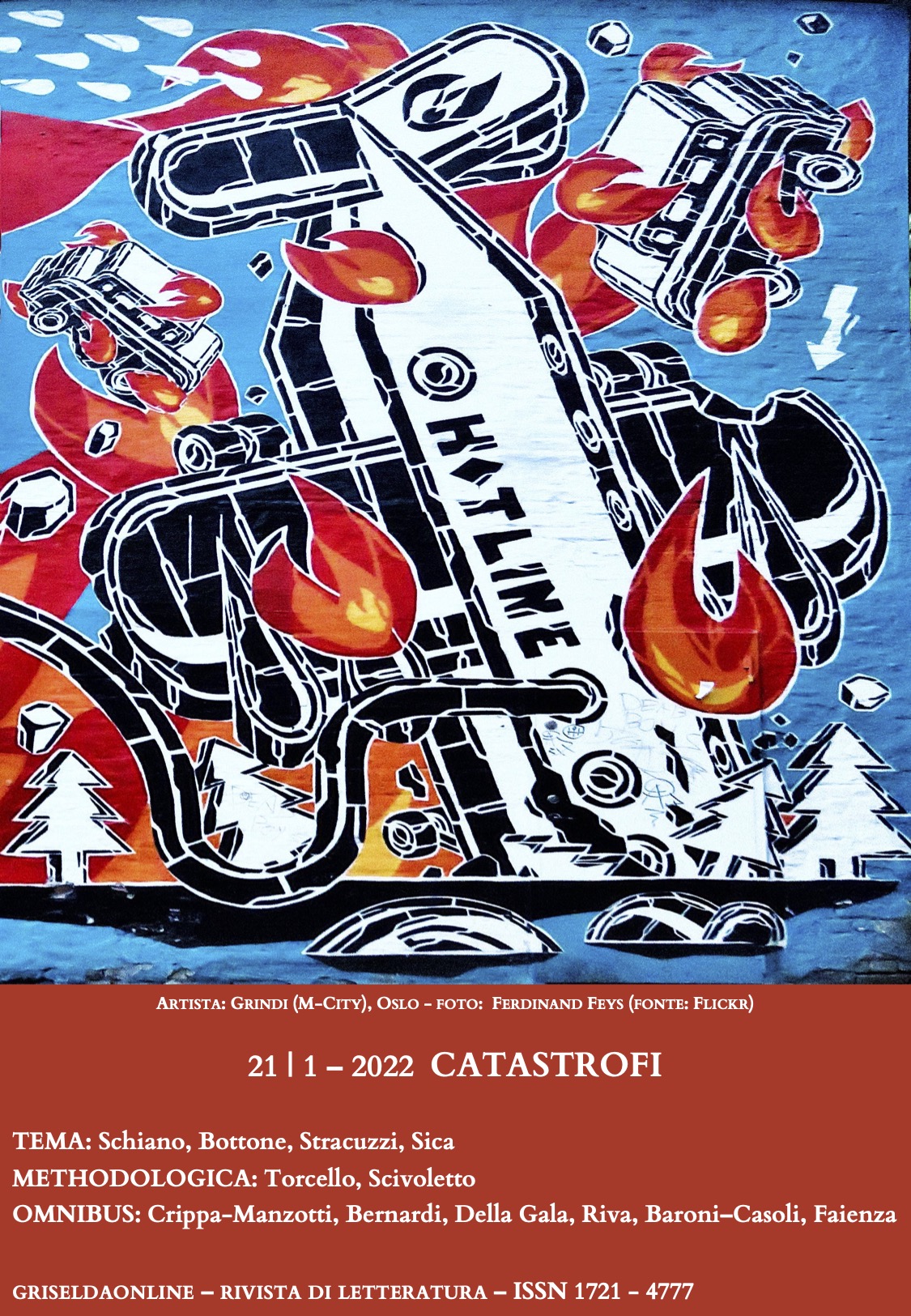«L’ora di Barga». On the bells of Pascoli
DOI:
https://doi.org/10.6092/issn.1721-4777/14193Keywords:
«L’ora di Barga», Eighteenth and Nineteenth Century, Italian poetry, PascoliAbstract
This paper intends to investigate the presence and the role of bells and tower bells in the Italian poetry of Giovanni Pascoli. The study is performed by finding textual occurrences and the opportunities which inspired the author, and simultaneously by studying the social role of bells at the end of the nineteenth century. It also suggests a map of poetic functions of bells throughout Pascoli’s work, to identify where tower bells belong and to observe how auto biography (even the anecdotic one) interacts with poetry. Then, the work examines how the sound of bell is treated in poetry and the evolution of this treatment from a body of collective works, from the graphic and onomatopoeic reproduction of the toll, to the lexical choices to identify it (tintinno, tinnito, tintinnio etc.). Finally, the paper analyses L’Ora di Barga, one of the most important poem for this analysis, considering the genesis of the text and its main theme: the «suon dell’ora» of the Duomo of Barga’s tower bell and the dialogue between it and the poetic voice.
Downloads
Published
How to Cite
Issue
Section
License
Copyright (c) 2022 Laura Crippa, Emilio Manzotti

This work is licensed under a Creative Commons Attribution-ShareAlike 4.0 International License.





